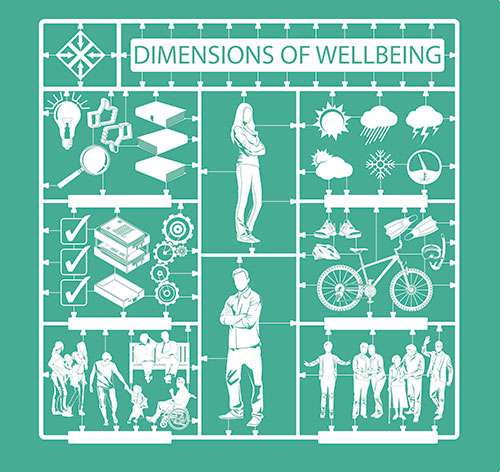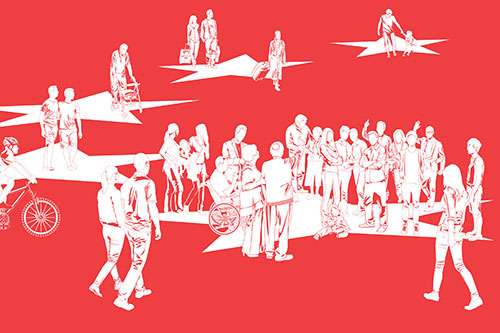Insights from the European Social Survey shed light on wellbeing

Does parenthood make us happy? Can we migrate to become happier? How does gender inequality influence depression rates? And how do we define and measure individuals' wellbeing across Europe?
New insights on these and other important questions are provided by the latest findings from the European Social Survey.
The results are presented in a new interactive website and accompanying print publication, both called Measuring and Reporting on Europeans' Wellbeing, which showcase the rich data and broad scope of the ESS to explore this complex topic.
The survey, which is freely available online, is one of the largest and most reliable sources of data about Europeans' attitudes, behaviours and experiences.
The topic of wellbeing is one of many covered by the ESS, which has its headquarters at City University London and has collected data from more than 350,000 individuals across 36 countries since 2002.
Academics, policy makers and students are encouraged to explore the new website and use the resource for their own research and informing policy: www.esswellbeingmatters.org.
Expert analysis explores the definition, drivers and distribution of subjective wellbeing in more than 30 European countries, using data from the first six rounds of the survey.
Among the key findings reported are:
- Having children does not always mean higher wellbeing for mothers. Although fathers are always happier than non-fathers, regardless of where they live, for mothers, it depends on having the right employment and welfare regimes in place to support the combination of childcare and paid work
- More gender equal societies have lower rates of depression among both men and women. Gender equality has a particularly beneficial effect on women's mental health and significantly reduces the gender gap in depression commonly found across Europe
- Migrants to wealthier European countries may not always be happier, and may even end up less happy, than people who remain in central-eastern Europe
- Democracy has a positive effect on wellbeing. Life satisfaction is higher in countries where democracy performs better. People are more satisfied with life if they perceive their democracy to be legitimate
- Lower air quality can have a significant negative effect on people's satisfaction with life.

Also published is the fifth booklet in the ESS Topline Results Series. The publication presents additional findings from the most recent round of the survey (Round 6) and focuses on personal and social wellbeing, exploring how it is distributed across countries, age groups and income groups.
It highlights the different components that make up individual wellbeing, including emotional and evaluative wellbeing, supportive relationships and vitality.
Rory Fitzgerald, Director of the ESS ERIC, said: "Wellbeing, and how to improve it, now occupies a prominent place on the agendas of European governments and their citizens.
"It is therefore essential that the results of rich, cross-national surveys, such as the ESS, are fully explored by academics and policy makers to provide them with the most accurate, up-to-date information possible.

"This new website showcases the wide-ranging scope of the ESS and highlights its power to reveal patterns in complex research areas, such as wellbeing.
"These new analyses offer insights on some of the most critical issues currently affecting people across Europe, including migration, the environment and gender equality."
The new website and ESS Topline Results Series booklet were made possible by the generous support of the Economic and Social Research Council (ESRC).
More information: All ESS data is available free of charge for non-commercial use and can be downloaded from the ESS website, www.europeansocialsurvey.org, after a short registration.
Provided by City University London

















